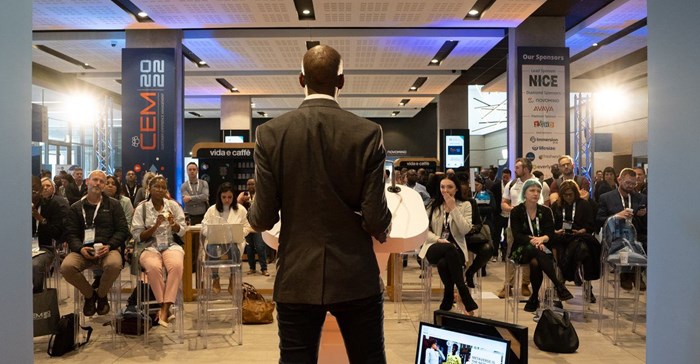4 key insights from leading brands in the CX industry

According to a recent survey, 87% of CX leaders believe that AI will revolutionise the way they engage with customers. Furthermore, there is a growing awareness of the importance of humanising experiences alongside digital advancements. Research shows that while 68% of customers appreciate the convenience of chatbots, 82% still prefer interacting with human agents for complex queries. Another significant trend is the rise of omnichannel experiences, as seamless integration across channels becomes a top priority for businesses.
Studies reveal that organisations with strong omnichannel strategies retain 89% of their customers on average.
As CX continues to evolve, these trends highlight the need for a balanced approach that combines technology, human touch, and a seamless cross-channel experience to deliverexceptional customer satisfaction and loyalty.But, what insights are there from those on the ground? How are companies keeping up, in South Africa and beyond?
Here’s what Nedbank, Forrester, Ipos and Service Now have to say.
Brands need to keep it real with their customers: Nedbank
One of the key trends that is currently having a stark impact on the industry is the growing recognition of Artificial Intelligence (AI) and the growing significance of humanising these experiences. While technologies like chatbots have gained prominence, customers still yearn for the human touch. Brands need to start realising the importance of striking a balance between digitisation and maintaining a personal connection with customers. Furthermore, seamless integration across various channels, known as the omnichannel experience, has become a crucial topic.
Nedbank speaker, Anton De Wet believes that successfully achieving this integration will provide a substantial competitive advantage.
Reflecting on the dynamic changes witnessed in the customer landscape over the past three years, De Wet observed several notable shifts:
Firstly, changes in spending habits influenced by increased interest rates have significantly impacted how customers approach banking. Secondly, extended periods of load shedding have affected individuals’ ability to manage their households, leading to a shift towards utilising takeaways and home delivery services.
Lastly, the rise in fraud incidents and the vulnerability of senior citizens to scams have emerged as growing concerns.
Inflation has a strong knock-on effect on the customer experience: Ipsos
In June 2022, inflation reached its highest rate in four decades, with a +9.1% increase compared to May 2021. Ipsos CX conducted a study to understand how this increased financial pressure impacts customer experience expectations.
Through their Human vs. Digital study, they discovered that the pandemic elevated expectations for digital engagement across all demographics.
As people re-enter the physical world, the demand for meaningful human interactions with employees has risen even further.
Another interesting note is that customers feel nearly two times more empathy for small businesses (81%) raising their prices compared to large companies (47%). Considering the impact of inflation on spending decisions, there is a growing customer demand for personalised experiences that resonate on a deeper level.
Brands are simply not customer obsessed: Forrester
In the midst of numerous C-level leaders proclaiming their organisations current or future customer-centricity, CX leaders face their most significant challenge yet: raising awareness among executives about the detrimental shadow they cast on efforts to become truly customer-obsessed. The stark reality is that the majority of organisations have yet to achieve customer obsession.
When examining the data, it becomes evident that companies are not led by a customer-centric approach. A mere 3% of business, IT, and marketing executives in the US, and only 2% in EMEA, belong to organisations that can be classified as fully customer obsessed, according to Forrester’s State Of Customer Obsession Survey, 2022.
Customer experiences fall short of excellence. Not a single brand assessed in Forrester’s Customer Experience Benchmark Survey, 2022, conducted in the US and EMEA, achieved an excellent score on the Customer Experience Index (CX Index™) in 2022.
Many leaders may profess their love for customers, but their actions demonstrate a failure to make customer obsession an integral part of their identity. They place emphasis on short-term revenue gains, compromising long-term customer loyalty.
Brands need deeper insights to understand customer experience: ServiceNow
In order to swiftly address customer issues, brands must have the ability to perceive the customer experience as it unfolds. This real-time visibility is crucial for achieving prompt issue resolution. While the ultimate goal is to resolve queries on the first contact, it is equally vital for customers to feel heard and assured that their concerns are being addressed.
Digitisation appears to offer a promising solution to address these needs, significantly enhancing service quality. Automation tools like chatbots can effectively handle routine inquiries, freeing up skilled resources to tackle more complex issues. Moreover, digitisation ensures that both bots and human agents can treat customers as individuals by accessing complete interaction histories at every engagement point.
However, it has become apparent that digitisation alone might not be sufficient.
According to a recent global survey conducted by ServiceNow and ThoughtLab, investments in digital transformation can yield deeper customer insights, leading to increased loyalty, retention, and enhanced security and privacy measures. Yet, across various industries and a sample of 1,000 surveyed executives, complaints showed little reduction, with only approximately 25% reporting any improvements. The survey revealed a common pattern: organisational challenges, such as siloed engagement and fragmented information, hindered the proactive resolution of issues.
Without access to a comprehensive 360-degree view of a customer’s engagement and purchase history, brands struggle to infuse interactions with the level of personalization necessary.
Furthermore, while chatbots may boast cost-effectiveness and resource optimisation on paper, some customers prefer the warmth of human interaction and find chatbots off-putting.
Do you want to know more and gain further insights into the industry?
CEM Africa 2023 boasts 60+ industry leaders covering topics in customer experience and contact centres.
Over the course of two full days, the conference will feature informative workshops and engaging panel discussions.







































